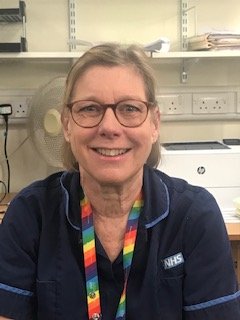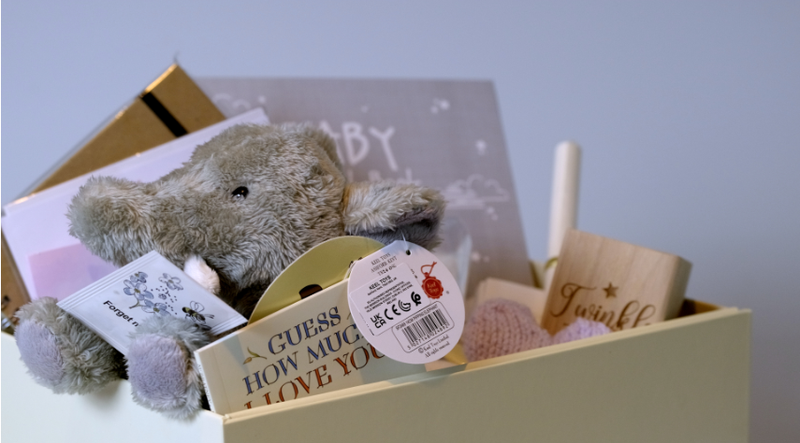Giving HOPE – Gloucestershire Hospitals Midwife honoured with National Safeguarding Star Award
Specialist Safeguarding Midwife Sally Unwin has been honoured for her work on the HOPE project, which creates connection boxes for women who are at risk of being separated from their baby at birth.
Sally was awarded a National Safeguarding Star for Outstanding Practice from NHS England last week. She received the Safeguarding Star Award for outstanding midwifery safeguarding leadership regarding the implementation of the Maternity HOPE Box Pilot.

HOPE stands for Hold On Pain Eases and aims to help to alleviate the trauma that parents experience when they are separated from their baby soon after birth due to a court decision. The boxes were co-developed with a group of women with lived experience of separation at birth. ‘The HOPE Mums’ aim to allow families to capture important memories before they are separated and aim to promote a continued connection between them and their baby post-separation while the courts consider longer-term plans for the child. Research published in 2018 undertaken by The Centre for Child and Family Justice Research at Lancaster University has shown that more than 2500 newborns in England alone are subject to care proceedings in England each year. The HOPE project forms part of new national guidelines developed by Lancaster University in partnership with the Nuffield Justice Observatory.
Sally Unwin said: “I feel privileged to have been part of this important pilot project and am delighted that this has been acknowledged at a national level. Being separated from a child is devastating no matter what the circumstances. The HOPE boxes are an intervention to help parents grieve their immediate loss and acknowledge their identity as parents at a time when the process they are caught up in is viewed as dehumanising and traumatic, often leading to further psychological distress.”
Rebecca Reynolds, National Safeguarding Clinical Lead at NHS England said: “It was a pleasure to honour Sally with a National Safeguarding Star, which awards. outstanding safeguarding practice for those colleagues that go above and beyond. Sally has absolutely demonstrated this with her leadership on the HOPE Boxes Steering Group and presenting on national webinars about the implementation of the HOPE boxes pathway at Gloucestershire Hospitals. Her passion and commitment to quality improvement for this often-marginalised cohort of women is exemplary.”
Sally explains, “The HOPE Boxes consist of two boxes, one to stay with the mother and one for the baby in their placement with kin or foster carers. The items in the boxes include a letter and poem from the HOPE mums’ group, a blanket, soft toy and candle, as well as a photo frame and acknowledgement of life certificate. The HOPE boxes are designed to support mother and baby to maintain a connection whilst decisions are still being made.
“It has been fantastic to work with midwives in other trusts to promote these boxes to the families we care for and to and we look forward to their wider implementation in all trusts that care for women at risk of separation at birth.”
About HOPE Boxes
HOPE boxes are being piloted by a small number of NHS Trusts between Summer 2022 and 2023 as part of the ’Giving HOPE’ impact project being led by The Centre of Child and Family Justice at Lancaster University.
Claire Mason, Research Fellow at the Centre for Child and Family Justice Research at Lancaster University, said: “The women with lived experience (HOPE mums) and the midwives involved in the co-production of the HOPE boxes intervention have been truly dedicated. We hope that this intervention will help improve practice surrounding separation at birth and that when separation is necessary, that the HOPE boxes help ensure that it is done with humanity and compassion and causes minimal trauma to mothers and their babies.” Read more about the Giving HOPE project

I feel privileged to have been part of this important pilot project and am delighted that this has been acknowledged at a national level. Being separated from a child is devastating no matter what the circumstances.
Sally Unwin, Specialist Safeguarding Midwife